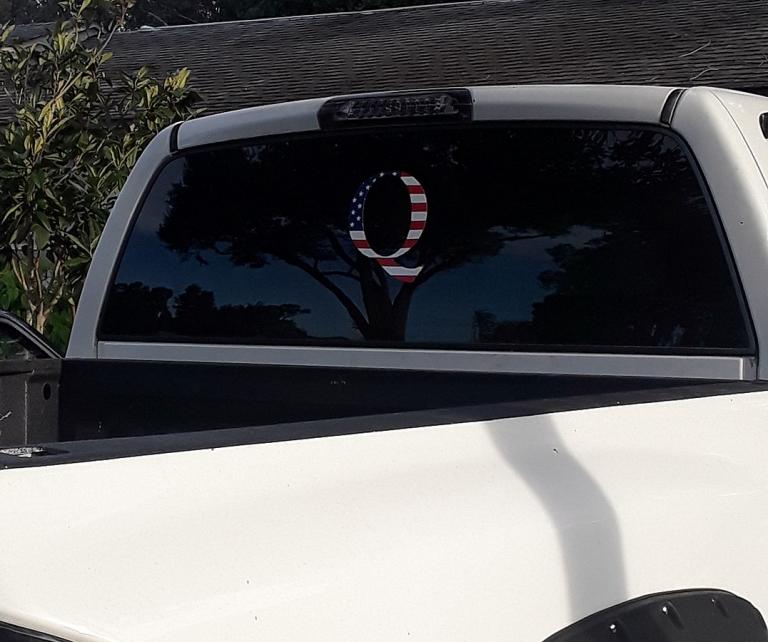
A June 2020 article in The Atlantic titled “The Prophecies of Q” includes the tagline “American conspiracy theories are entering a dangerous new phase.” Are you familiar with Q and QAnon? You should be. It’s a big deal, as The Atlantic article indicates, and regardless of whether you are a conspiracy theorist.
I reached out to four colleagues well-versed on the subject of QAnon to get their take on this movement, its import for the Evangelical Christian community, and dynamics involving conspiracy theories. Here are the bios of my guests:
Terry Mattingly (tmatt.net) writes the national “On Religion” column for the Universal syndicate and is Senior Fellow at The Overby Center at the University of Mississippi. He was the founder of the Washington Journalism Center at the Council for Christian Colleges and Universities, which in 2015 moved to The King’s College in New York City. Mattingly is the founder and editor of GetReligion.org, which for 17 years has offered a critique of religion-news coverage in the mainstream press. Viewers are also encouraged to engage the following works from Mattingly related to this episode’s themes/discussion points: his national column on QAnon; his original GetReligion post on QAnon; his GetReligion post No. 1 and podcast on this topic; and his Haddon Robinson tribute chapter.
Paul T. Coughlin is an expert witness regarding bullying and the law, and is a FoxNews analyst and contributor. He is a popular speaker who has appeared on Good Morning America, Nightline, C-Span, The LA Times, The New York Times, Newsweek and other media outlets. Paul is a best-selling author of eight books, including the freedom-from-bullying parent and teacher resource for Raising Bully-Proof Kids and Free Us from Bullying: Real Solutions Beyond Being Nice, as well as Secrets, Plots and Hidden Agendas: What You Don’t Know About Conspiracy Theories. He works with numerous professional organizations to diminish bullying, including the Baltimore Ravens. His anti-bullying curriculum is used throughout North America as well as in other countries.
Joe Carter is an editor for The Gospel Coalition, author of The Life and Faith Field Guide for Parents, the editor of the NIV Lifehacks Bible, and the co-author of How to Argue Like Jesus: Learning Persuasion from History’s Greatest Communicator. He also serves as an executive pastor at the McLean Bible Church Arlington campus in Arlington, Virginia. He has written on QAnon for The Gospel Coalition.
John W. Morehead is involved in the intersection of the church and culture. He is Director of Multi-faith Matters as well as the Evangelical Chapter of the Foundation for Religious Diplomacy. Morehead is the author and editor of numerous books and articles and a strategic partner of The Institute for Cultural Engagement: New Wine, New Wineskins.
Here are the questions for the interview. Check out the video below for my guests’ responses.
- What is QAnon? (Terry M)
- The recent Atlantic article on QAnon was quite critical of it, but not critical enough of the Evangelical movement’s engagement and reception of it. How so? Please respond to your concerns about the article and your concerns about QAnon itself. (Terry and Joe C)
- What gives rise to conspiracy theory groups psychologically? Trauma, etc.? (Paul C and John M)
- Speaking of trauma, some such groups look to apocalyptic literature in Scripture. These biblical texts were birthed in the context of exile and persecution. What are similarities between these groups today and Ezekiel, Daniel, and Revelation? Differences? (Joe and John)
- Wounded communities wound others. What is the negative import of conspiracy theories and groups on the life of the church and society? Consider Colossians with gnostic spirituality involving secret knowledge and accompanying abuse in the life of the faith community, which the Apostle Paul addressed head-on. (Paul C)
- Closing thoughts?
Subscribe to the New Wine, New Wineskins YouTube channel for more discussions on pressing theological-cultural issues.












